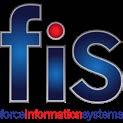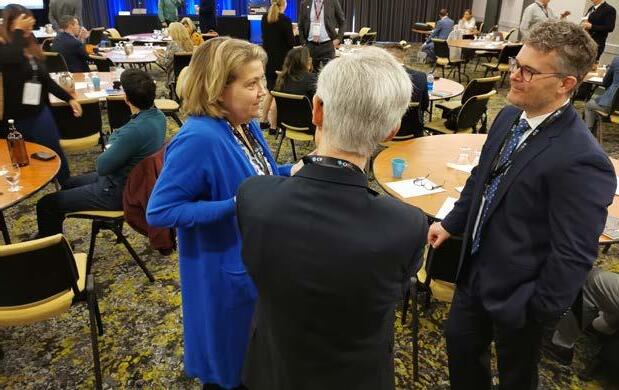




EASTERN EDITION
Canada’s must attend event for in-house police counsel and professional standards officers
May 8 & 9, 2024
Sandman Signature Mississauga Hotel, Mississauga, ON
Canada’s Most Comprehensive, Practical Conference on Police Reform and Legal Liability

CONFERENCE CO-CHAIR

Sgt. Amar Gosal Professional Standards Unit (PSU) Royal Canadian Mounted Police (RCMP), O Division
Benchmark With:
• CBSA
• National Police Federation
• New Brunswick Police Commission
• Office of the Independent Police Review Director (OIPRD)
• Ontario Ministry of the Solicitor General
FEATURED SPEAKERS

R. Kyle Friesen, O.O.M. General Counsel, Legal Services Surrey Police Service

Mathai Senior Counsel, Crown Law Office Ontario Ministry of the Attorney General


What’s New for 2024? New, Updated Discussions Include:
Association
• Ontario Securities Commission
• RCMP
• Surrey Police Service
• Toronto Police Association
• York Regional Police Services Board
Location-Arrow Bail Reform Act: The Expected (and Unexpected) Impact of How Bill C-48 Amendments are Changing Policing
Location-Arrow Preparing for Disciplinary Regimes under the Reformed Community Safety and Policing Act, 2019 (CSPA)
Location-Arrow BWC Investigative Techniques and How Evidence is Now Being Used in Court
Location-Arrow The Legal Parameters Affecting AI Ethics, Law, Policy and Usage by Police
Location-Arrow Cybercrime Investigations: Canadian and International Perspectives on Cross-Agency Collaboration
EXHIBITOR


Sgt. Amar Gosal Professional Standards Unit (PSU) Royal Canadian Mounted Police (RCMP), O Division


Justin Amaral Legal Counsel National Police Federation
Anitra Basant Sisavang Executive Director York Regional Police Services Board
Anthony Brancato Special Agent in Charge-Attaché United States Secret Service U.S. Embassy Ottawa

Rayon Brown Community Economic Development Director Helping Neighbourhoods Implement Change Member Community Advisory Board Toronto Police Service

David Butt Barrister Camden Lane Law Chambers

Insp. Lina Dabit OIC FP Cybercrime Investigative Team, Toronto CIT Royal Canadian Mounted Police (RCMP)

Mario Di Tommaso Deputy Solicitor General Ontario Ministry of the Solicitor General
Robert Duncan, JD LL.M. Attorney-Advisor (Instructor), Office of Chief Counsel, Federal Law Enforcement Training Centers United States Department of Homeland Security (DHS)




Dean Embry Partner
Embry Dann LLP
R. Kyle Friesen, O.O.M. General Counsel, Legal Services Surrey Police Service
Solomon Friedman Partner
Friedman Mansour LLP
Carla Goncalves Deputy Director Law Enforcement Complaints Agency (LECA)
Jeffrey A. Hosking, Ph.D. JD, Attorney-Advisor (Instructor), Office of Chief Counsel, Federal Law Enforcement Training Centers United States Department of Homeland Security (DHS)
• Police Chiefs, Deputy Chiefs, Sheriffs, and their Counsel
• Police Commissioners
• Professional Standards Investigators
• Executives of Police Associations and their Counsel



Sarah Hunter Director, ATIP Correctional Service Canada
Dubi Kanengisser Executive Director Toronto Police Service Board
Anil K. Kapoor Barrister Kapoor Barristers
Lauren Katz Counsel Ontario Ministry of the Solicitor General
Jack Laird Senior Manager, Biology Ontario Ministry of the Solicitor General
Heather Mackay Crown Counsel, Office of the Independent Police Review Director/Law Enforcement Complaints Agency Ontario Ministry of the Attorney General

Sunil Mathai Senior Counsel, Crown Law Office Ontario Ministry of the Attorney General

Eric Neubauer Defense Counsel Neubauer Law Co-Chair Criminal Lawyers Association Technology Committee
• Police Discipline Adjudicators
• Criminal Law Practitioners
• Government Policy Drafters

Deqa Nur Executive Director
Hooyo Innovation Hub Member, Community Advisory Panel Toronto Police Service


Jon Reid President Toronto Police Association
Katherine Robertson Senior Research Associate, Citizen Lab, Munk School of Global Affairs & Public Policy University of Toronto

Margaret Sciortino Hearings Officer
Canada Border Services Agency Community Advisory Panel Co-Chair Toronto Police Service

Jennifer Smith Executive Director New Brunswick Police Commission
Jeremy Tatum Counsel, Crown Law Office, Criminal Ontario Ministry of the Attorney General

Larry Vieira Counsel Toronto Police Association
• Government Attorneys
• Members of the Plaintiff Bar
• Police Service Board Members

7:45 Registration Opens and Refreshments Served
8:45
Opening Remarks from the Co-Chairs
microphone-alt Sgt. Amar Gosal, Professional Standards Unit (PSU), Royal Canadian Mounted Police (RCMP), O Division
9:00
microphone-alt Jon Reid, President, Toronto Police Association
Eric Neubauer, Defense Counsel, Neubauer Law Co-Chair, Criminal Lawyers Association Technology Committee
This session will look at Bill C-48, An Act to amend the Criminal Code (bail reform), which comes into effect January 2024. How will the bill work in concert with the Canadian Charter of Rights and Freedoms and the Criminal Records Act?
• Creating a new reverse onus to target serious repeat violent offending involving weapons
• Expanding the list of firearms offences that trigger a reverse onus
• Broadening the reverse onus targeting repeat offenders of intimate partner violence
• Clarifying the meaning of the terms “prohibition order” in an existing reverse onus for offences involving weapons
• Requirements for:
» courts to consider an accused person’s history of convictions for violence when making a bail decision
» courts to state on the record for any bail decision that they have considered the safety and security of the community in relation to the alleged offence (thereby increasing accountability to the public)
» courts to state on the record for any bail decision how they have considered the particular circumstances of Indigenous accused and accused from vulnerable overrepresented populations, as required by section 493.2 of the Criminal Code

9:45
Very well-organized conference. Good variety of topics and speakers, yet
all relevant to our work.
– Mathieu St. Germain, Legal Counsel, Calgary Police Service


Preparing for Incoming Disciplinary Regimes under the Reformed Community Safety and Policing Act, 2019 (CSPA)
microphone-alt Lauren Katz, Counsel, Ontario Ministry of the Solicitor General
Larry Vieira, Counsel, Toronto Police Association
The Comprehensive Ontario Police Services Act (2019) is coming into effect April 2024, with updated rules for disciplinary hearings. Different types of disciplinary action can be imposed by the Chief of Police without first conducting a hearing.
• Status report on the timeline for implementation
• How the disciplinary regime in the Act will affect professional standards, and internal disciplinary prospective?
• Disciplinary hearings in matters of terminations and demotions
• Deciphering when suspension without pay is warranted and under what conditions
• When to go to arbitration
• Determining what constitutes fair legal representation for the police association member
10:30 Networking Break
10:45 FOCUS ON BWC – PART I
microphone-alt Sunil Mathai, Senior Counsel, Crown Law Office, Ontario Ministry of the Attorney General
Deqa Nur, Executive Director, Hooyo Innovation Hub Member, Community Advisory Panel, Toronto Police Service
Margaret Sciortino, Hearings Officer, Canada Border Services Agency Community Advisory Panel Co-Chair, Toronto Police Service
In a precedent-setting 2023 Ontario Court decision, the act of two Toronto Police Service officers muting their body worn cameras during an arrest, has resulted in an acquittal following a 2021 impaired driving charge. In a second unrelated case, gun charges were dropped after Durham Regional Police officers testified they also muted their microphones mid-arrest.
This session will discuss the evolving legal implications of BWC evidence in court.
S 2:45 Networking Break
microphone-alt Dubi Kanengisser, Executive Director, Toronto Police Service Board
Katherine Robertson, Senior Research Associate, Citizen Lab, Munk School of Global Affairs & Public Policy, University of Toronto
• Identifying the scope and legal parameters of AI usage in policing
• Determining how police can use AI tools for investigations and in evidence
• Creating a policy forward process that anticipates the implementation challenges and the evolution of Artificial Intelligence and Machine Learning
• Exploring AI applications in direct correlation to known problems, including optimizing resources
• How to proactively address privacy concerns
• Authenticating audio and video, and identifying manipulated evidence
12:15 Networking Luncheon for Speakers and Delegates
1:30
2:00 STATUS UPDATE
microphone-alt Justin Amaral, Legal Counsel, National Police Federation
Carla Goncalves, Deputy Director, Law Enforcement Complaints Agency (LECA)
Sgt. Amar Gosal, Professional Standards (PSU), Royal Canadian Mounted Police (RCMP), O Division
Jennifer Smith, Executive Director, New Brunswick Police Commission
Delegates will hear a status report on the types of complaints being lodged against police officers, the frequency of the types of complaints, and how there are viewed by oversight agencies. Discover which types of complaints are most common, which are considered vexatious and/or frivolous, and which are of most concern.

3:30
microphone-alt Anil K. Kapoor, Barrister, Kapoor Barristers
Solomon Friedman, Partner, Friedman Mansour LLP
This session will look at the evolving legal, operational and budgetary challenges surrounding electronic surveillance.
• Examining the reasonable expectation of privacy in IP addresses, with a look at the SCC pending decision in R. v. Bykovets (2022)
• Ensuring the data can be searched, and examining R. v. Cuffie (2020) ONSC
• When the Crown’s disclosure of non-searchable PDF constitutes meaningful disclosure
• Handling the volume of data acquired by electronic surveillance and disclosure requirements
microphone-alt Robert Duncan, JD LL.M., Attorney-Advisor (Instructor), Office of Chief Counsel, Federal Law Enforcement Training Centers, United States Department of Homeland Security (DHS)
Jeffrey A. Hosking, Ph.D. JD, Attorney-Advisor (Instructor), Office of Chief Counsel, Federal Law Enforcement Training Centers, United States Department of Homeland Security (DHS)
This session will delve into the awareness and prevention work the United States Department of Homeland Security is doing to address missing and murdered Indigenous people, both in the realm of cybercrime and human trafficking, across the U.S.-Canada border.
• Recognizing the red flags of trafficking in a community
• Evidence gathering and information sharing
• Maintaining a list of trafficking incidents
• Giving expert testimony in court
• Explaining evidence gathering, and sharing techniques and technology in court
I was very pleased with the whole thing. The speakers were all knowledgeable about their topics, and the topics were interesting and varied.
– Jean-Michel Lenihan, Legal Counsel, RCMP External Review Committee
5:00
from the Co-Chairs

Thursday, May 9, 2024
8:30 Registration Opens
9:00
Opening Remarks from the Co-Chairs
9:05

Mario Di Tommaso Deputy Solicitor General Ontario Ministry of the Solicitor General
9:30 FOCUS ON BWC – PART II
microphone-alt R. Kyle Friesen, O.O.M., General Counsel, Legal Services, Surrey Police Service
• Clarifying when BWC need to be on vs off
• What discipline themes/challenges arise in connection with BWC
• Discussing cases on BWC and their lessons
• Where are the gaps in the policy from department to department
• Setting out expectations of usage
• Guidelines for when/when not to take disciplinary action
10:15 Networking Break
10:30
microphone-alt Anitra Basant Sisavang, Executive Director, York Regional Police Services Board
Heather Mackay, Crown Counsel, Office of the Independent Police Review Director/ Law Enforcement Complaints Agency, Ministry of the Attorney General
Coming into effect for April 2024, the Community Safety and Policing Act, (2019) (CSPA), as part of the Comprehensive Ontario Police Services Act, (2019), will replace the current Police Services Act (PSA).
• Conducting complaint and misconduct investigations under the new Act
• Examining how discipline, suspension and independent adjudication will be handled under the new Act

• What is considered “adequate and effective policing” under the new Act

• Examining how the roles and responsibilities of the boards and chiefs are changing
• Analyzing anticipated changes in labour relations
11:15
microphone-alt Jack Laird, Senior Manager, Biology, Ontario Ministry of the Solicitor General
Jeremy Tatum, Counsel, Crown Law Office, Criminal, Ontario Ministry of the Attorney General
• Identify victims of historic cases using forensic genealogy for 3D facial recognition imaging
• Evolving investigative techniques
• Targeting geography for DNA collection samples
• Blood warrant
• DNA Doe Project
12:00 Networking Luncheon for Speakers and Delegates
1:00
microphone-alt Anthony Brancato, Special Agent in Charge-Attaché, United States Secret Service, U.S. Embassy Ottawa
Insp. Lina Dabit, OIC FP Cybercrime Investigative Team, Toronto CIT, Royal Canadian Mounted Police (RCMP)
• Examining the latest in digital forensic investigative techniques
• Trends in cyber investigations from the private sector perspective
• Partnering and sharing information: How, when and what gets shared between agencies
Media Partners:



microphone-alt Dean Embry, Partner, Embry Dann LLP
Sarah Hunter, Director, ATIP, Correctional Service Canada
This session will examine what information is shared between corrections and police when an inmate is released, as well as the information sharing process.
• Examining the standard information sharing process, and when information is shared, with whom, and when
• Deciphering when additional information can be requested and under what circumstances
• Analyzing what types of information are considered private and what is in the police/public interest
• Writing production orders for corrections
2:30 Networking Break
2:45
microphone-alt David Butt, Barrister, Camden Lane Law Chambers
• Adhering to hearing timelines and meeting the duty hold hearings within a reasonable timeline
• Delineating when a disability claim will result in a hearing postponement, and when proceedings can move forward
• Analyzing how mental health disability will impact a professional standard’s hearing, including timelines and delays
• Addressing the medical evidence in a trial
• Outlining which medical information a physician can share with police and/or an employer
microphone-alt Anitra Basant Sisavang, Executive Director, York Regional Police Services Board
Rayon Brown, Community Economic Development Director, Helping Neighbourhoods Implement Change, Member Community Advisory Board, Toronto Police Service
Under the incoming Community Safety and Policing Act (2019), police services boards are required to create a diversity plan to ensure that the members of the board reflect the diversity of the surrounding municipal population.
• Examining the liaison role between police and community, from day-to-day and when there is an emergency situation
• The impact of a community advisory board on situations such as a protest, compared to when there is no community advocate
• Calibrating communication when a community is in mourning
• Addressing the unmet needs of a community and bringing those to police attention 4:15


This 2-day conference program can be applied towards 8 of the 9 substantive hours of annual Continuing Professional Development (CPD) as required by the Law Society of Ontario. Members will also receive an additional 3 Professionalism hours for attending pre-conference Workshop A and 3 Substantive hours for attending pre-conference Workshop B
The same number of hours may be applied to your continuing legal educational requirements in British Columbia
The Barreau du Québec recognizes this training activity, the latter having been accredited by another Law Society subject to the MCLE.
For Alberta lawyers, consider including this course as a CPD learning activity in your mandatory annual Continuing Professional Development Plan as required by the Law Society of Alberta.
The Law Society of Saskatchewan recognizes another province’s CPD credits so long as the hours are submitted to the Director of Admissions & Education for approval.
S = Substantive CPD P = Professionalism CPD




C5 celebrates 40 years of excellence! We are thrilled to have provided exceptional conference experiences globally with our outstanding team, speakers, sponsors, partners, and attendees. To mark this milestone, we're launching a new logo which represents our commitment to innovation, growth, and excellence, represented by the five Cs of C5: Current, Connected, Customer-Centric, Conscientious, and Committed.
Looking back on 40 years, we are grateful for our achievements—hosting global conferences, uniting industry leaders, and supporting business growth. However, we are not done yet! We are committed to pushing boundaries and creating impactful experiences and we're excited for the next 40 years of success.
Sandman Signature Mississauga Hotel
5400 Dixie Road, Mississauga, ON, L4W 4T4
Phone: 1-800-SANDMAN or 1-905-238-0159
The Canadian Institute is pleased to offer our delegates a limited number of hotel rooms at a negotiated rate. To take advantage of these rates, please contact the hotel directly and quote “The Canadian Institute – Law of Policing Eastern Edition – Group #325031.”
Please note that the guest room block cut-off date is April 6, 2024. After that date OR when the room block fills, guestroom availability and rate can no longer be guaranteed.
BOOK NOW

Register and pay to lock in your early rate and be eligible for a full refund until April 24, 2024.
If you are unable to attend for any reason, you will have the following options:
y A full credit note for you, or a colleague to attend another event.
y A full refund.
All cancellations and changes must be submitted to CustomerService@CanadianInstitute.com by April 24, 2024.





Interested in attending virtually?
If you choose to attend via livestream you can expect true interaction virtually — from start to finish. Contact our customer service team at 1-888-224-2480 or CustomerService@CanadianInstitute.com to learn more about this option.